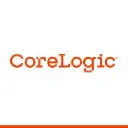
CoreLogic Overview
CoreLogic is a provider of property data and analytics solutions for real estate, finance, and insurance industries. It offers comprehensive property information, analytics, and data-enabled services to help businesses make informed decisions, manage risk, and optimize operations.
Key Features of CoreLogic
- Property Information Database: Access to a vast collection of property data, including ownership, characteristics, and valuation.
- Risk Management Solutions: Tools for assessing and managing property-related risks, including natural hazards and fraud detection.
- Valuation Services: Automated valuation models (AVMs) and other tools for accurate property valuations.
- Geospatial Data and Analytics: Location-based insights and mapping capabilities for property analysis.
- Market Trends and Forecasts: Comprehensive reports and analytics on real estate market trends and predictions.
What Makes CoreLogic Unique
- Comprehensive Data Coverage: CoreLogic's database covers 99.9% of U.S. properties, providing unparalleled depth and breadth of information.
- Integrated Solutions: Seamlessly combines property data, analytics, and risk management tools in a single platform.
- Advanced AI and Machine Learning: Utilizes cutting-edge technologies for more accurate predictions and insights.
- Customizable APIs: Offers flexible API integrations for tailored data delivery and workflow optimization.
- Multi-Industry Expertise: Provides specialized solutions for real estate, mortgage lending, insurance, and government sectors.
Is CoreLogic Right for Me?
Signs You Need CoreLogic
- Frequent property valuations required
- Difficulty obtaining accurate property information
- Need for historical property data
When CoreLogic Isn’t the Right Fit
Customizing CoreLogic
- API Integration: Customize data delivery and integrate CoreLogic's solutions into existing workflows
- Tailored Reports: Create custom reports and analytics dashboards based on specific business needs
- Risk Models: Adjust risk assessment models to align with specific risk tolerances and business objectives
- Data Packages: Select specific data sets and analytics tools relevant to your industry and use case
- Workflow Automation: Set up automated alerts, notifications, and actions based on property data changes or risk thresholds
Is CoreLogic Worth It?
CoreLogic's comprehensive property data and analytics solutions are worth the investment for large real estate companies, financial institutions, and insurers seeking to make data-driven decisions and manage risk effectively. The software's value is most apparent when dealing with high-volume property transactions, complex risk assessments, or when precise property valuations are crucial to business operations. For small local real estate agencies or individual investors, CoreLogic's extensive features and pricing might exceed their needs, and more basic property information tools could suffice.
How Much Does CoreLogic Cost?
Competitors to CoreLogic
| Vendor | Reasons to Consider | Best For |
|---|---|---|
| Estated | Focuses on property data API with competitive pricing | Startups and smaller companies needing basic property data integration |
| Local Logic | Specializes in location intelligence and neighborhood data | Real estate platforms and apps focusing on location-based insights |
| PropertyScout.io | Offers simplified property data API with flexible pricing | Developers and small teams needing quick access to property information |
| Black Knight | Comprehensive mortgage and real estate data and analytics | Large financial institutions and mortgage servicers |
| Zillow | Consumer-focused real estate database with APIs for businesses | Real estate platforms targeting consumers and agents |
| Attom Data Solutions | Provides property data and analytics with a focus on real estate investors | Real estate investors and analytics firms |
Open Source Alternatives to CoreLogic
| Projects | Reasons to Consider | Best For |
|---|---|---|
| OpenAddresses | Provides a global collection of address data | Projects requiring basic address information without advanced analytics |
